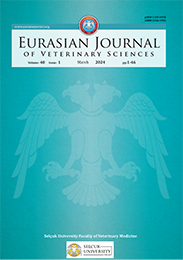| 1998, Cilt 14, Sayı 2, Sayfa(lar) 005-013 |
| [ Türkçe Özet ] [ PDF ] [ Benzer Makaleler ] |
| The Effects of The Pastörization Temperature on Quality of The White Cheese Production |
| Mustafa Nizamlıoğlu1, Abdullah Keleş1, Mustafa Atasever1, Semra Kayaardı2, Ümit Gürbüz1 |
| 1S.Ü. Veteriner Fakültesi, Besin Hijyeni ve Teknolojisi Anabilim Dalı, KONYA 2C.B.Ü. Mühendislik Fakültesi, Gıda Mühendisliği Bölümü, MANİSA |
| Keywords: White cheese, production techniques, quality |
| Downloaded:2752 - Viewed: 2367 |
|
The aim of the study was to determine the effects of different heat treatments on chemical, microbiological and sensory properties of white pickled cheese. Three different heat treatments were applied. These were, 15 min. at 65°C (Type I), 10 min. at 75°C (Type II) and 5 min. at 85°C (Type III). The highest fat in dry matter content were obtained from the samples of high heat treated group (Type III) and the lowest values were obtained from the low heat treated group (Type I). It was found that the samples produced from high heat treated milk (T 111) were lower in salt contents. No coliforms found at the 60th and 90th days of ripening period. Fecal streptococci counts were decreased among the ripening period. At 15th and 30th days the yeast and mould counts were slightly increased and alter then decreased among the ripening period. In sensory evaluations, generally the samples of T iII group were obtained high scores than the others. As a result, it was concluded that, heat treatment of 85°C was increased the cheese quality, yield and microbiological quality was became better.
|
| [ Türkçe Özet ] [ PDF ] [ Benzer Makaleler ] |




